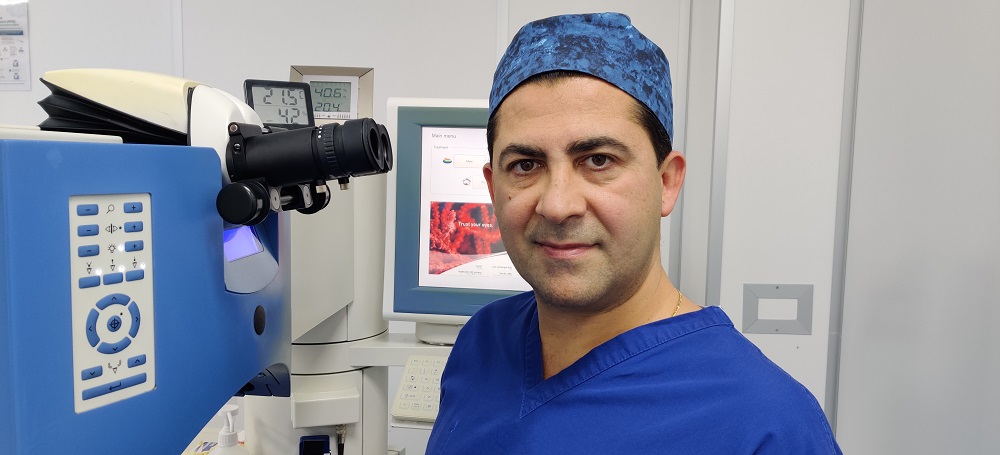-

-



Open six days a week - book a consultation with a specialist now - No Hidden Charges, No Pressure, Affordable
Long-sightedness, also called hyperopia or hypermetropia, is a common visual disorder. It occurs when the eyeball is too short, or the total power of the eye is not strong enough.
Some of the significant methods of correcting hypermetropia are the surgical methods which include clear lens exchange and laser eye surgery.
Contact us if you have questions on hypermetropia or its available treatment options.
Since the eye does not have enough power or the eyeball is too short, the light rays that enter the eye fall at the back of the retina instead of the retina itself. This causes the resulting vision to be blurry, especially when the object is near. The degree of the effect is dependent on the severity of the condition.
This condition is widespread and can be over at any age. Since the primary causes of the disease are not too strong power of the eye and short eyeballs, it is most common in children. However, children tend to outgrow the condition when their eyeballs grow out.
The following symptoms are associated with long-sightedness:
These symptoms worsen when you perform tasks like reading and other near vision activities. It is very common for the symptoms of hypermetropia to occur when the patient is spending a significant amount of time doing close work like exams. Though visual systems can help this condition in small amounts, it can become problematic if the effort is exerted for an extended period.
Ensure you contact us if you have symptoms of hypermetropia and would like to discuss your treatment options.
An optometrist can diagnose hypermetropia during a routine eye examination. Alongside its diagnosis, some common forms of correcting vision can be prescribed to help relieve the symptoms.
One of the commonly prescribed solutions for long-sightedness is positive lenses. They help increase the power of the eye and reduce the amount of effort your visual system will have to exert to overcome the present condition. They also help reduce the symptoms for patients suffering from the disease.
Several numbers are related to eye prescriptions. The relevant figure in hypermetropia is Sphere. Doctors sometimes abbreviate it as Sph. This number describes the strength of your potential lens, and it is measured in dioptres (D). Positive numbers (e.g. +3.00DS) are used for hypermetropia and negative numbers (-) for myopia or short-sightedness.
The severity of the long-sightedness determines the prescription of the Sphere, which begins from zero. The higher the Sphere prescription, the more severe the hypermetropia.
Spectacles and contact lenses are used for the correction of hypermetropia. Also, eye surgery can be a very effective option for suitable candidates.
If you choose to go for surgical correction for the treatment for hypermetropia, ensure you discuss your choice with your eye surgeon. He will examine you and consider the factors to be aware of (your age, the severity of the prescription, thickness of your cornea, etc.) and decide whether or not there are other present eye conditions. From the findings, he will determine whether you are suitable for eye surgery or not.
We offer more than just information. Contact us to discuss your treatment options and concerns.

Dr Mani has performed more than 20,000 ophthalmic procedures, including LASIK, LASEK, PRK, Femto Cataract, RLE, Lens ICL and Phakic IOL Surgery
